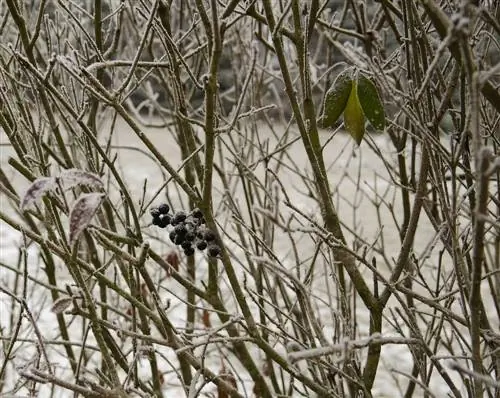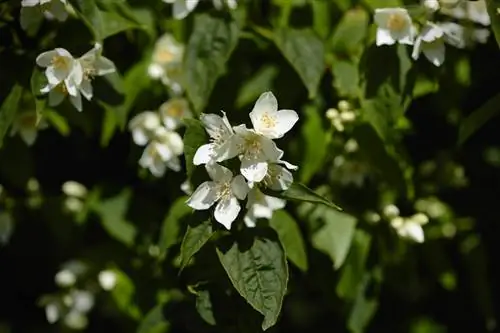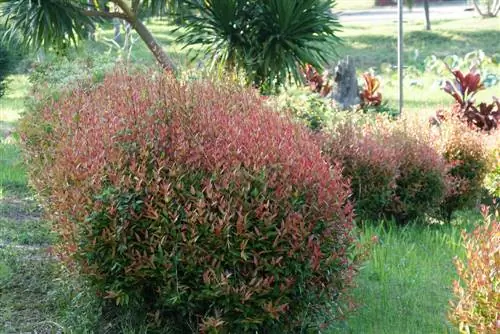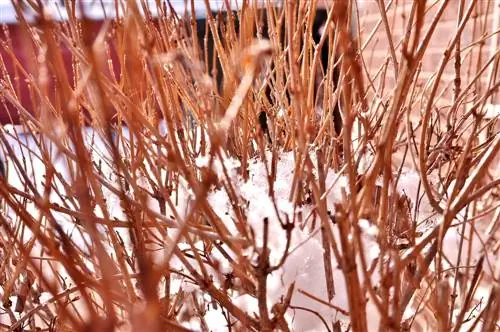- Author admin leonars@hobbygardeners.com.
- Public 2023-12-16 16:46.
- Last modified 2025-01-23 11:21.
Privet is a very robust shrub that is native to our latitudes. It is absolutely hardy and needs little care in winter. This is how you get your privet through the cold season.
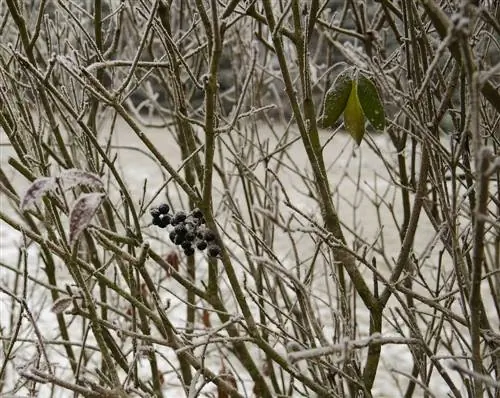
How to care for privet in winter?
Privet is hardy and requires little care in winter. Make sure to water adequately in dry conditions, apply a layer of mulch and protect young plants from strong winter sun. You should no longer cut the privet in autumn.
Caring for Privet in Winter
Privet is completely hardy with the exception of a few non-native varieties. It can easily cope with temperatures down to minus ten degrees and more - even without winter protection.
The only danger is that the soil dries out too much in very dry winters. You should therefore water a privet hedge once on frost-free days.
- Privet is hardy
- watering in dry winters
- Create mulch cover
- protect younger privets from too much sun
Protect young plants from winter sun
Young privet plants suffer from excessive sunlight in winter. If the sun shines down on the leaves remaining on the bush for too long, the tender shoots will burn. This is not dangerous for the shrub, but it doesn't look so nice in spring.
You should therefore ensure that the young plants are lightly shaded after planting in autumn or plant them immediately in the partial shade of taller trees. Simply cut off burnt shoots in spring.
Privet loses its leaves in winter
Even if privet is described or even sold as evergreen, this is not correct. The shrub sheds its leaves during fall and winter. This is a natural process and no cause for concern.
The privet owes its reputation as an evergreen plant to the fact that some varieties such as Atrovirens retain their foliage for a very long time. But these species also lose their leaves by spring.
Create mulch cover
It has proven useful to spread a layer of mulch under privet hedges or privet bushes. Especially in winter, it ensures that the earth does not freeze too hard. It also retains moisture in the soil so you need to water less.
The mulching material decomposes over the course of the year and releases nutrients. This even saves you having to fertilize.
The mulch is replaced every spring.
Tip
Experienced gardeners recommend that you stop cutting privet in the fall. When the temperatures are cold in winter, the fresh shoots freeze because they have not yet been able to harden sufficiently.

